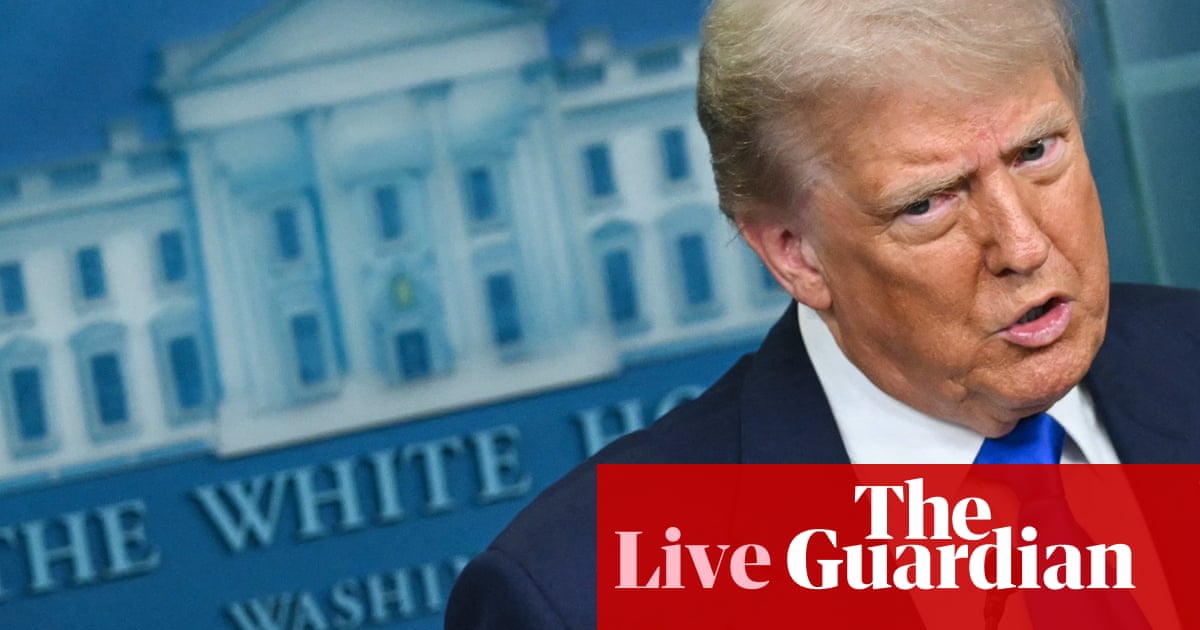Trump’s Tariff Letters: A New Chapter in Trade Relations
Donald Trump has recently taken bold steps in reshaping U.S. trade policy, indicating that he will send additional tariff letters to several foreign leaders in the coming days. According to Karoline Leavitt, White House Press Secretary, this move aligns with the administration’s strategy to enforce tariffs on imports from key trading partners.
The Announcement of New Tariffs
As part of this initiative, Trump plans to issue approximately 12 letters to foreign leaders, with Japan and South Korea already on the receiving end. The communication emphasizes a 25% tariff on goods exported from these nations, set to take effect from August 1. Leavitt highlighted that starting with these two Asian allies was a strategic decision entirely at the president’s discretion.
"It’s the president’s prerogative and those are the countries he chose."
This initial focus on Japan and South Korea reflects the administration’s intent to address what it describes as ongoing trade imbalances. The letters contain not only a warning of tariffs but also an invitation to negotiate better trade practices.
Economic Implications for the EU
Across the Atlantic, the European Union has received a temporary reprieve from potential 50% tariffs, which is little comfort for the bloc. Irish Prime Minister Micheál Martin has indicated that while the EU welcomes the delay, there’s an ongoing need to achieve a “framework agreement” that could mitigate future tariff threats. However, he acknowledged that some tariffs might remain, impacting sectors such as the automotive industry and pharmaceuticals.
Martin expressed:
“I want to be clear that while it is likely there will be some form of tariffs going forward, their imposition even at a lower rate is bad for consumers, jobs, economic growth, and investment.”
The complexities surrounding trade negotiations further complicate the EU’s stance, as it navigates its own economic interests alongside U.S. demands.
Expansion of Tariffs: Target Countries
In addition to Japan and South Korea, other nations are also feeling the sting of Trump’s tariff strategy. The list includes Malaysia, Kazakhstan, South Africa, Laos, and Myanmar, each facing varying rates of tariffs ranging from 25% to a staggering 40%. The order of these tariffs indicates a keen interest in adjusting balances across diverse markets.
The specifics of the tariffs reveal a pattern: aggressive levies aimed at nations that the administration perceives as contributors to trade deficits. For instance, Trump’s letters to South Africa and Malaysia indicate an overarching ambition to compel these countries to alter their trade policies or face significant financial repercussions.
The Tone of Communication
What stands out in Trump’s letters is their tone, reflecting a blend of firm authority and negotiation. He has invited Japan to open its markets, promising potential adjustments to the tariffs if Japan complies.
"We look forward to working with you as your Trading Partner for many years to come," Trump noted, setting a tone that suggests potential cooperation amid rising tensions.
This approach signals that while tariffs are a tool for economic pressure, they are also part of a broader, more strategic dialogue.
Wider Reactions and Future Developments
As these tariff letters circulate, the reactions vary significantly among affected nations. While some leaders express a readiness to negotiate, others may prepare for potential retaliation. The EU has already indicated their discontent, noting that the temporary measures allow them to regroup and develop responses.
The conversation around tariffs extends into discussions on the impact of these policies on the global market, raising questions about potential trade wars and their implications for international economic stability.
In Washington, internal discussions continue, with Republicans largely supportive of Israel’s defense strategies while navigating their own party divides over foreign policy. A scheduled meeting between Speaker of the House Mike Johnson and Israeli Prime Minister Benjamin Netanyahu reflects ongoing diplomatic efforts amid the backdrop of tariff discussions.
Conclusion: A Trade Policy in Flux
Trump’s assertive tariff announcements and his ongoing strategy represent a pivotal moment in U.S. trade relations. Whether this approach will yield the desired results in terms of trade balance remains to be seen, but the implications are sure to reverberate through global markets, affecting relationships and economic policies for years to come.


